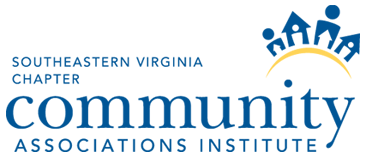Making Your List and Checking It Twice: Holiday Party Checklist for Virginia Community Associations

Tis the season for community association holiday and year-end parties. With such festive and fun-filled events, come certain responsibilities and measures community association should consider. Below is a list of suggested items that should be reviewed prior to an association-sanctioned or association-hosted holiday party.
Comply with Virginia Alcoholic Beverage Control Authority (“ABC”) Laws
If alcohol will be present at the association’s holiday or year-end party, it is important to determine whether an ABC banquet license will be needed. A banquet license is typically issued to individuals representing themselves or their organization for a private event where alcohol is provided at no charge to guests. Such banquet license authorizes (a) complimentary beer, wine, or mixed beverages, (b) BYOB, or (c) beer and/or wine sales that are not for profit. For Virginia ABC laws and community associations, however, there is an important exception to the banquet license requirement for community associations that meet the definition of “common interest communities” under Va. Code § 54.1-2345[1], provided that the following requirements are met:
(i) The party is limited in attendance to the members of the common interest community and their guests;
(ii) the alcoholic beverages are not sold or charged for in any way;
(iii) the premises where the alcoholic beverages will be consumed is limited to the common area regularly occupied and utilized for such private meetings or private parties, and
(iv) such meetings or parties are not open to the public.
If your community association is uncertain whether a banquet license is needed for an association-sanctioned party, the association may contact a Virginia ABC special agent from the applicable regional enforcement office for assistance (https://www.abc.virginia.gov/enforcement/bureau-of-law-enforcement/regional-offices).
Acquire Licenses for Playing Music and/or Movies
If a community association plans to publicly play music and/or a movie at the holiday or year-end party, the requisite license(s) will be need. Most music and movies are protected by copyright laws and use of such work without a license would be an infringement on such copyright. It is important to note that a public performance license is needed even if the plan is to play music over Pandora, Spotify, or other streaming service, or even if the plan is to play music from a playlist of purchased and downloaded music. Statutory damages for copyright infringement can be hefty and range from $750 to $30,000, plus a potential for additional monetary damages and criminal penalties.
Public performance licenses for music may be obtained from one of the following performance rights organizations: the American Society of Composers, Authors and Publishers; Broadcast Music, Inc.; or Society of European Stage Authors and Composers [2]. Movie licenses may be obtained from several sources, including Criterion Pictures USA, Inc., Motion Picture Licensing Corporation, and SWANK Motions Pictures, Inc[3].
Community associations should consult with their legal counsel for questions about the licensing of music and/or movies. For more information regarding copyright infringement issues as they relate to community associations, see CAI’s Music & Movie Licensing Guidance Document for Community Associations (May 2017) (https://www.caionline.org/Advocacy/Resources/Documents/Music%20and%20Movie%20Licensing%20Guidance%20Document.pdf).
Obtain Adequate Insurance Coverage
Fun times are to be had at community association holiday or year-end parties, but sometimes parties do not go as planned. In the event of an incident, such as when someone is harmed or injured, the community association may be liable, or at the very least, named as a defendant in a legal action. In either scenario, the cost of defending the community association can be expensive. Community associations should meet with their insurance broker or agent to discuss what types of insurance coverages and exclusions are in place and whether additional policies and/or coverages should be purchased for additional protection. Such insurance policies may include general liability insurance, special event insurance, workers’ compensation insurance, and/or an umbrella policy.
Not Run Afoul of the Fair Housing Laws
All Virginia community associations are subject to the federal Fair Housing Act (“FHA”) and the Virginia Fair Housing Law (“VFHL”) (FHA and VFHL collectively “Fair Housing Laws”). The Fair Housing Laws prohibit discriminatory housing practices against individuals based on their race, color, religion, sex (including sexual orientation and gender identity), national origin, familial status, handicap or disability, and the VFHL provides additional protection to individuals based on their elderliness, source of funds, or military status.
So, how may Fair Housing Laws be implicated when it comes to a community association’s holiday or year-end party? One example of a potential fair housing violation is an “Adults-Only Holiday Party” or “21 and Up Holiday Party”. Typically, the reason behind such age restriction is because alcohol will be present at the event and the association wants to prevent underage drinking. However, under Fair Housing Laws, such restriction may be problematic as it discriminates against individuals who may have familial status[4].
Community associations have a legitimate concern in wanting to prevent underage drinking at their events; however, a ban on individuals under 21 years of age from attending may be violative of the Fair Housing Laws as it treats those with familial status differently and does not do so with the least restrictive means. Instead, community associations can implement other means of preventing underage drinking such as providing wristbands to individuals who are 21 and up.
If a community association is considering placing restrictions on who can attend certain association-sanctioned events, it should be mindful that there may be fair housing implications and to contact legal counsel to discuss the same.
Disclaimer: The information in this article is for general information and is not legal or tax advice. Nor does any exchange of information associated with this article in any way establish an attorney-client relationship.
Kathleen W. Panagis is an attorney with Woods Rogers Vandeventer Black PLC and a member of the firm’s Community Associations law team. With close to fifteen years of experience, she serves as general counsel to homeowner and condominium associations located in Virginia. Kathleen serves as a member of the Southeastern Virginia Chapter of the Community Associations Institute’s Board of Directors and Executive Board. She frequently teaches and writes articles on issues that impact on Virginia community associations. When not practicing law, Kathleen serves as a short-order cook, entertainment director, part-time paleontologist, wrestling referee, and Lego architect to her two beautiful, young sons.
T. Duggan O’Dea is an attorney based in the Richmond office of Woods Rogers Vandeventer Black PLC. His practice focuses primarily on commercial transactions involving business and real estate acquisitions and dispositions. Prior to starting his career as an attorney, Duggan served in Operation Enduring Freedom as a member of the U.S. Coast Guard, and later retired as a police officer after having served with various Virginia law enforcement agencies, to include the Virginia Alcoholic Beverage Control Board’s Bureau of Law Enforcement. When not helping his clients, Duggan enjoys spending time outdoors with his wife, son, and daughter.
